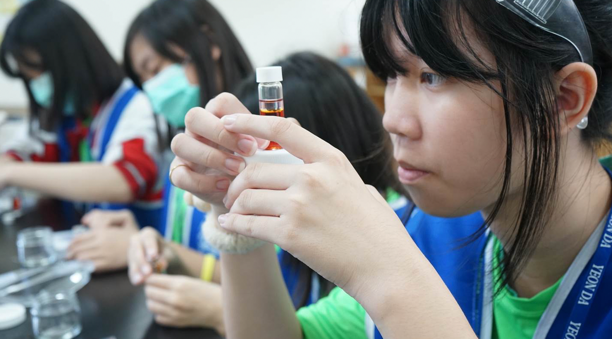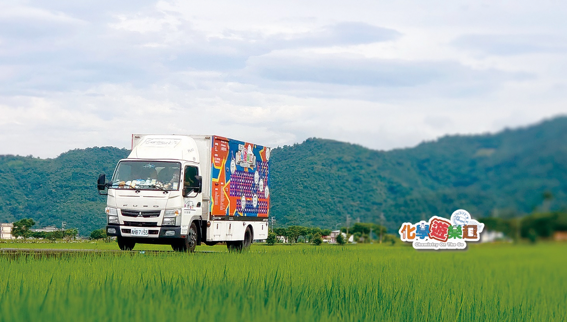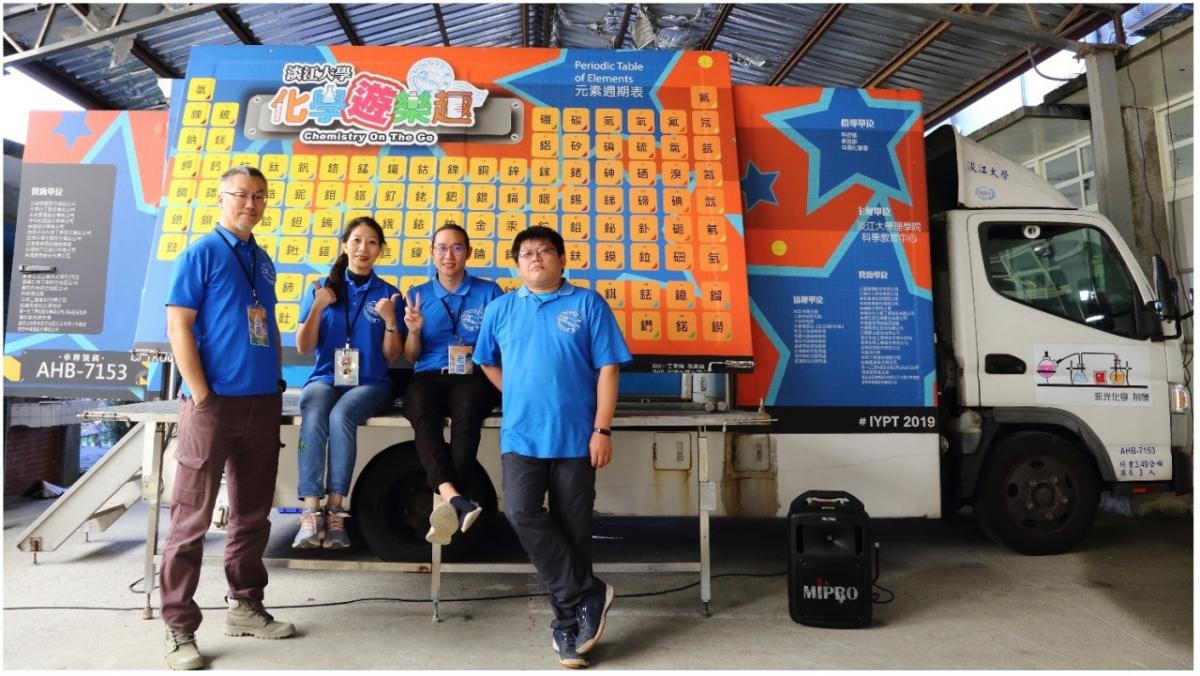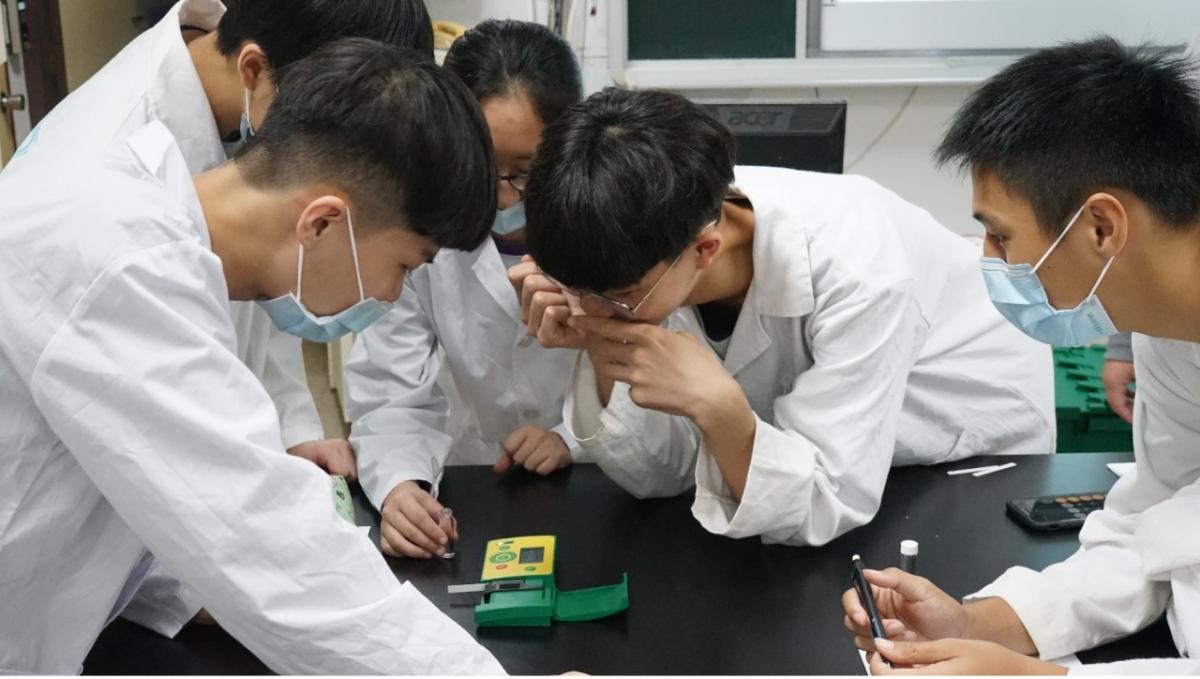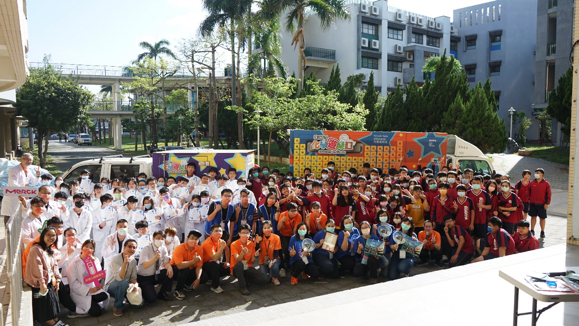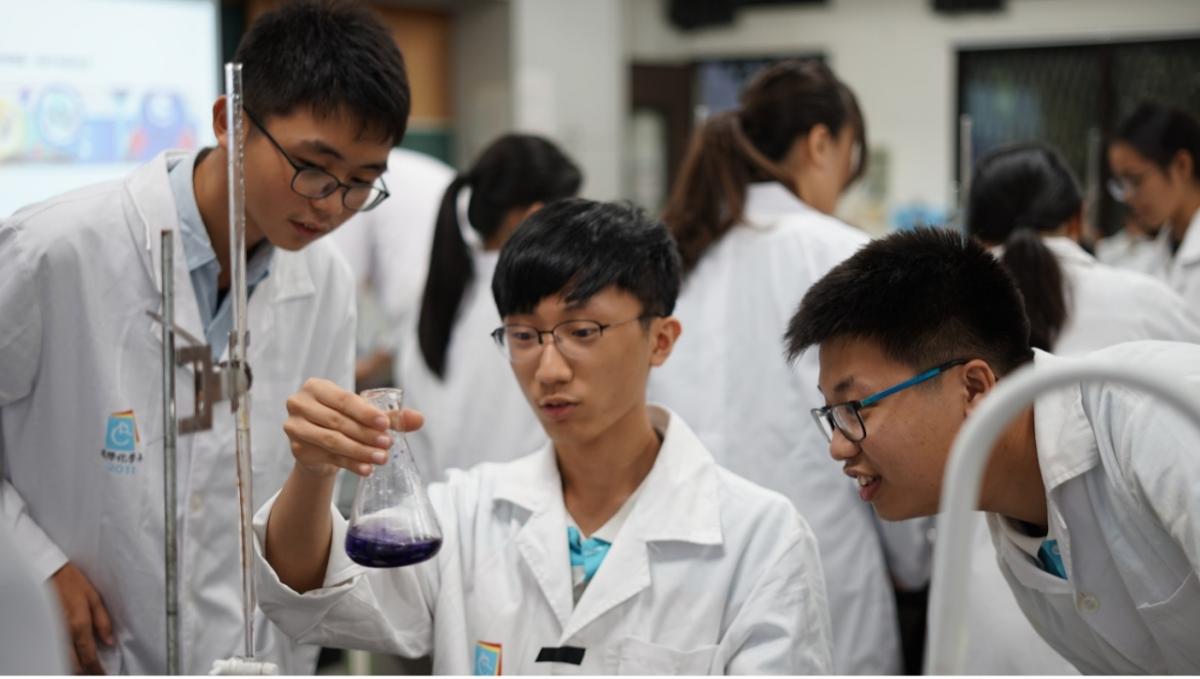MilliporeSigma Partnership Spotlight: Chemistry on the Go
We are proud to partner with Tamkang University for its Chemistry on the Go program, which engages students in rural and under-resourced areas of Taiwan through hands-on science experiments. MilliporeSigma has equipped two mobile science lab vehicles. Our employees also provide guidance on experiment design, delivery and career connections to industry. Our continued investment will allow the scientific vehicles to run approximately 100 sessions for students annually by 2022, increasing the reach and programming offered to underserved schools. In addition, our support will help provide workshops, seminars and other career exploration opportunities to students.
We sat down with Rogers Kao, CEO of the Center of Science Education for Tamkang University, to highlight the impact Chemistry on the Go is making on students in Taiwan.
1. Please explain what Chemistry on the Go does and its mission.
Our journey began a decade ago when the United Nations General Assembly, with support from the United Nations Educational, Scientific and Cultural Organization, named 2011 the “International Year of Chemistry” (IYC2011). Groups from various countries came together in celebration of the IYC2011, including Taiwan.
This sparked the idea to make chemistry available to as many students as possible, especially in underprivileged areas around Taiwan. As a result, we were motivated to convert 3.5-ton box trucks into a mobile lab and an analyst lab. These vehicles would visit junior and senior high schools in every county and city in Taiwan—introducing chemistry to students through magic shows, commentaries, mini-lectures, demonstrations and hands-on experiments. This program became known as Chemistry on the Go.
2. Tell us about your role at Chemistry on the Go.
I’m the CEO of the Center of Science Education, Tamkang University (TKU). The center oversees and manages the Chemistry on the Go program. Due to the comprehensive program and mobility, in actuality, I’m a Jack-of-all-trades. I’m responsible for project coordination and reporting, and am also one of the drivers of the mobile/analyst lab, a part-time art designer for the program and the financial manager. The team has four full-time members, who are responsible for different aspects—including completing paperwork and writing instructions for the experiments, hardware and instruments, scheduling and planning events and trips, and coordinating human resources efforts. We require strong and cohesive teamwork to hold more than 60 Chemistry on the Go sessions each year. Of course, the chair of the center, Professor Bo-Cheng Wang, manages the team, supervises the budget and serves as a liaison with the university, academic groups and chemistry industry companies that support our program.
3. What is the reach and impact of Chemistry on the Go?
Chemistry on the Go has traveled all around Taiwan for 10 years. We have reached all 22 divisions of Taiwan with 580 activities—and the project can reach more than 6,000 students per year. About 65 percent of the schools we have traveled to are located in underprivileged areas, and 5 percent of the schools are located in industrial areas. Students there have fewer chances to learn about chemistry through experiments, with rarely any chances to conduct experiments in class. Chemistry on the Go tries to bring hands-on chemistry experiments to the students, to make chemistry interesting and improve their attitude toward science.
4. What feedback have you received from students who have experienced the mobile science lab and analysis lab?
Most students think the hands-on mobile lab activities are interesting, understandable and inspiring. We are glad to see some students asking a lot of questions during our sessions, which Taiwanese students rarely do. Many students confidently show their results to their teachers and family, according to the schools’ feedback. The mobile lab really makes a deep impression of what chemistry is and shows students how interesting chemistry experiments can be.
The analyst lab experience is another sort of achievement for students. The program is designed for students who plan to study science at a higher academic level. They are always excited to wear a lab coat and practice their titration skills for the first time. The best feedback we received is that the lab gives students insight into a scientific research career. Furthermore, this experience has reinforced their plans to major in chemistry at a university.
5. Why do you think it’s valuable to bring hands-on science experiences to students?
It’s challenging for educators to teach chemistry and bring these types of experiences to students in Taiwan. Not enough high school teachers graduate from chemistry departments. It also takes a lot of time to learn and prepare the reagents, instruments and reactions. Teachers in cities have more support from textbook publishers, local governments and teacher associations to hold the experiments for students. However, teachers in underprivileged areas need to spend a lot of time helping students overcome struggles, due to the lack of resources or their surroundings. It’s more difficult for these teachers to build a nice chemistry laboratory and give their students chances to perform experiments. There is little to no opportunity to see chemistry come alive. The theory from the books is usually very dry and not engaging. In these cases, students cannot relate to the subject matter, which makes it uninteresting and, as a result, they give up on learning.
6. How has Chemistry on the Go supported teachers and schools in Taiwan?
For each event, we invite the teachers to participate in the activities and we share how we prepare the reagents and lessons. If possible, we will also demonstrate how we design the activities and the programs for Chemistry on the Go. We hope that teachers can use our material to influence students who aren’t present at Chemistry on the Go visits. When schools hold a chemistry fair or the teachers need a chemistry assistant, the students can be the best volunteers and provide great help. This makes a good support group for science education and helps the students in underfunded schools perform better.
7. How has MilliporeSigma’s partnership with Chemistry on the Go supported the organization’s mission?
MilliporeSigma’s partnership helps our team build a stable core of members for Chemistry on the Go. The funding allows team members to have more job security. To make this program a long-term success, we depend on this main group of well-versed individuals. When they gain seniority and familiarity with the activities and experiments, it saves us the time and energy for recruitment, training and communications. With these strong team members, we can focus on developing new programs, topics, experiments and chemistry shows. We also have more capacity to train TKU student volunteers.
The partnership also brings more of MilliporeSigma’s resources into the Chemistry on the Go program. The course designed for the analyst lab is based on MilliporeSigma’s RQflex® 20, a new kind of technology for analyst chemistry, and brings a new perspective to students.
8. What has been the most rewarding part of your role at Chemistry on the Go?
When we travel around Taiwan, it’s amazing to be called or recognized by students who previously participated in the activities. Normally, the team spends a few hours in a school and then moves on to the next. Yet, Chemistry on the Go has a lasting impact on the students. They remember what we did, and they are happy to see us, chat with us, ask more questions about chemistry or talk about their goals. One of the best things is when they tell us that they plan to pursue a science major in university.
9. Is there anything else you’d like to add?
I would like to thank MilliporeSigma for its support of Chemistry on to Go. Ten years is a long journey, and it’s not always easy to continue our efforts in Taiwan—especially since our team, who aims to improve public understanding of chemistry with a series of activities, has a budget that mainly comes from government projects. Support from companies in the chemistry industry gives us more incentive and determination to continue. The resources and new technology allow our team to proudly teach kids who participate in the activities. The future is bright when you have curiosity about the world. How amazing is it that chemistry and science can improve our lives? It takes a lot of passion to work together and solve problems. With the support of a company like MilliporeSigma, we have a very good example to show the kids, and help inspire them and hopefully change their lives for the better.

